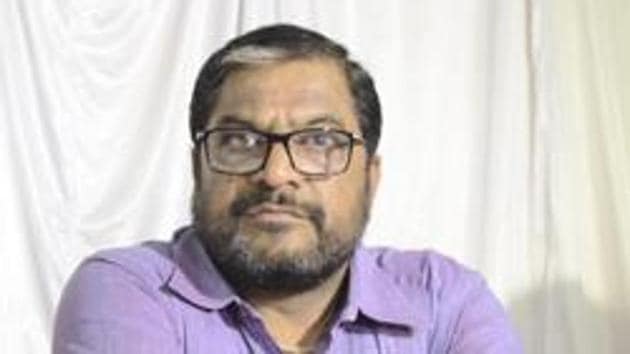Raju Shetti-Rahul Gandhi meet: BJP cautious about the possible alliance
BJP leaders said the party will react on the issue only after Shetti officially joins hands with the Congress.
A day after Swabhimani Paksha chief Raju Shetti met Congress president Rahul Gandhi and hinted at joining the United Progressive Alliance (UPA), BJP leaders exercised caution in reacting to the emerging political equations while observers were sceptical about the success of a new alliance.

BJP leaders said the party will react on the issue only after Shetti officially joins hands with the Congress.
“While we do not want to underestimate anyone, it will be premature to react on the alliance between Swabhimani Paksha and Congress. Let the two officially announce their tie-up and only then will BJP react to it,” said Keshav Upadhye, BJP spokesperson.
While Shetti is likely to join UPA in the coming days, political observers said it will be interesting to see how much the Hatkanangale member of Parliament can convince his votebank from western Maharashtra to back the Congress-NCP, against whom Shetti has been fighting for more than a decade.
“The challenge before Shetti will be to convince small land-holders to vote for NCP-Congress leaders, who control most sugar factories in western Maharashtra. For over a decade, Shetti’s Swabhimani Shektari Sanghatana (SSS) has been fighting against the sugar factories for higher rates to farmers produce,” said professor, political science, Prakash Pawar.
In the past, Shetti had carried out violent agitations against cooperative sugar mills controlled by the Congress-NCP leaders demanding higher prices for sugarcane. Reacting to his agitations, the Nationalist Congress Party (NCP) chief Sharad Pawar had accused Shetti of deliberately targeting factories owned by the Maratha community.
“It is not fair to target other community’s factories and not those owned by your own community,” Pawar had then remarked. While most leaders belonging to NCP-Congress and controlling sugar factories are Marathas, Shetti is Jain.
Shetti had joined NDA ahead of the 2014 Lok Sabha polls and was elected from the Hatkanangale in Kolhapur. Following the differences with BJP, SSS broke its ties with the saffron outfit in August, becoming the first to exit from the National Democratic Alliance (NDA), after it came to power at the Centre in 2014 and later in Maharashtra the same year.
After his meeting with Gandhi at his residence in Delhi, Shetti said, “I have already snapped ties with NDA. After the meeting with Gandhi, there is an another option in front of me.”
Shetti’s political move has come at a time when farm distress is at the centrestage with opposition parties taking out protest march, escalating atmosphere for ahead of Lok Sabha elections scheduled in 2019.
Recently, farmers marched from Nashik to Mumbai under the banner of left parties with Congress, NCP, Shiv Sena and Maharashtra Navnirman Sena supporting it. Observers said that if Shetti manages to get his supporters to vote for Congress, it can dent BJP’s chances in at least seven Lok Sabha constituencies of Western Maharashtra having rural base.
BJP’s state-level leaders, requesting anonymity, accepted that rural distress is one of the worries for the BJP government ahead of the Lok Sabha elections. The amount of support various farmers issues and strikes are garnering, it is sure to affect the ruling party.






